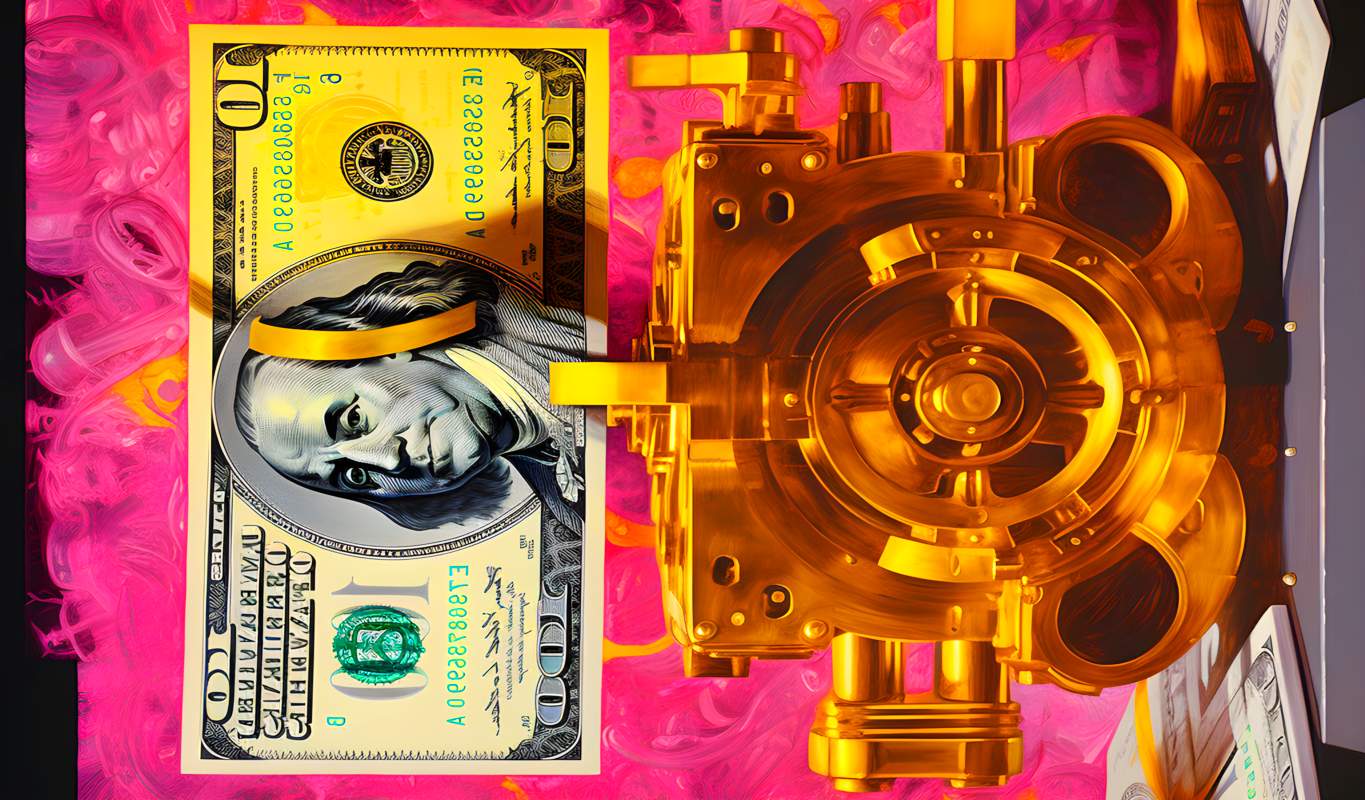So, you're thinking about buying a house, huh? And you've probably heard about the term "chase prequalify mortgage." Let's be real, navigating the world of home loans can feel like trying to decode ancient hieroglyphics. But don't sweat it, because we’re here to break it down for you in a way that won’t make your brain explode. Whether you're a first-time homebuyer or a seasoned pro, understanding how to prequalify for a mortgage through Chase can save you a ton of time and headaches. Let's dive in!
Buying a home is one of the biggest financial decisions you'll ever make. But before you start scrolling through Zillow and dreaming about that dream kitchen, you need to get your finances in order. That's where prequalification comes in. Prequalifying for a mortgage with Chase gives you a ballpark figure of how much house you can afford, and it's like having a financial compass in your pocket. It's not just about knowing your budget; it's about feeling confident in your decision-making process.
Now, let's clear something up. Prequalifying isn't the same as getting pre-approved. Think of prequalification as a casual chat with your bank, while pre-approval is like putting on your Sunday best and signing some paperwork. With Chase, the prequalification process is quick, painless, and super convenient. So, if you're ready to take the first step toward homeownership, keep reading. We’ve got all the juicy details you need to know.
Read also:Montgomery County Supports Displaced Federal Workers A Lifeline For Those In Need
What Does It Mean to Chase Prequalify Mortgage?
Alright, let's break it down. When you prequalify for a mortgage with Chase, you're essentially getting an estimate of how much money they're willing to lend you based on your financial situation. It's not a binding commitment, but it gives you a rough idea of your budget. Think of it as a sneak peek into your homebuying potential. You'll need to provide some basic info like your income, assets, and debts, and Chase will crunch the numbers for you.
Here's the cool part: the prequalification process with Chase is usually free and doesn't require a hard credit check. That means your credit score won't take a hit, and you can shop around for homes without worrying about financial repercussions. Plus, having a prequalification letter in hand can make you look more serious to sellers, which is always a good thing in today's competitive market.
Why Chase Prequalify Mortgage Matters
Let's talk about why this step is so important. First off, it helps you set realistic expectations. If you're dreaming of a mansion but your budget only allows for a cozy bungalow, prequalification will help you adjust your expectations before you fall in love with a home you can't afford. It also gives you a leg up in the homebuying process. Sellers love buyers who are prequalified because it shows you're serious and financially ready to make a move.
Plus, prequalification can help you identify any potential red flags in your financial situation. If your debt-to-income ratio is too high or your credit score needs a boost, you can take steps to improve those areas before applying for a mortgage. It's like a financial health check-up that can save you from future headaches.
How to Chase Prequalify Mortgage: Step-by-Step Guide
Ready to get started? Here's a step-by-step guide to help you prequalify for a mortgage with Chase:
- Gather Your Documents: You'll need to provide some basic info like your income, employment history, and assets. Don't worry, you don't need to submit any official documents at this stage. Just have the info handy so you can fill out the application accurately.
- Visit Chase's Website: Head over to Chase's mortgage prequalification page and start the application process. It's all online, so you can do it from the comfort of your couch.
- Answer Some Questions: Chase will ask you a few questions about your financial situation. Be honest and accurate, because this info will determine your prequalification amount.
- Review Your Prequalification Letter: Once you're prequalified, Chase will send you a prequalification letter that outlines how much they're willing to lend you. Keep this letter handy when you start house hunting.
What You Need to Prequalify with Chase
Now, let's talk about the nitty-gritty details. To prequalify for a mortgage with Chase, you'll need to provide the following info:
Read also:Philadelphia Bagel Sellers Facebook Revealed The Untold Story Of A Local Legend
- Your annual income
- Your employment history
- Your monthly debts (like car loans or credit card payments)
- Your assets (like savings accounts or investments)
Don't freak out if you don't have all the exact numbers. You can estimate some of these figures, and Chase will still be able to give you a rough estimate of your prequalification amount. It's all about getting a general idea of your financial situation.
Understanding the Chase Prequalification Process
Let's dive deeper into how the prequalification process works. When you apply for prequalification with Chase, they'll review your financial info and calculate your debt-to-income ratio. This ratio is a key factor in determining how much you can afford to borrow. A lower debt-to-income ratio means you have more disposable income to put toward your mortgage payments.
Chase will also take a look at your credit score, although it's usually a soft inquiry that won't affect your credit. If your credit score is on the lower side, don't worry. Chase offers a variety of mortgage options to fit different financial situations, so there's still a good chance you can qualify for a loan.
Common Questions About Chase Prequalify Mortgage
Here are some common questions people have about the prequalification process:
- Does prequalification guarantee a loan approval? No, prequalification is just an estimate. To get approved for a mortgage, you'll need to go through the full application process and provide official documents.
- How long does prequalification last? Prequalification letters typically last for 90 days. If you haven't found a home within that timeframe, you may need to reapply.
- Can I prequalify if I have bad credit? Yes, Chase offers mortgage options for borrowers with lower credit scores. However, you may face higher interest rates or additional requirements.
Benefits of Chase Prequalify Mortgage
So, why should you bother with prequalification? Here are some of the key benefits:
- Get a Head Start: Prequalification gives you a head start in the homebuying process by helping you understand your budget before you start shopping for homes.
- Save Time: By knowing how much you can afford, you can focus your search on homes that fit within your budget, saving you time and energy.
- Look More Competitive: Having a prequalification letter makes you look more serious to sellers, which can give you an edge in a competitive market.
How Chase Stands Out in the Mortgage Game
Chase is one of the biggest names in the banking world, and they offer a wide range of mortgage options to fit different financial situations. From fixed-rate mortgages to adjustable-rate loans, Chase has something for everyone. Plus, their online application process is super user-friendly, and you can track your application status in real-time. If you're looking for a reliable and reputable lender, Chase is definitely worth considering.
Common Mistakes to Avoid When Prequalifying
While prequalification is a straightforward process, there are a few mistakes you'll want to avoid:
- Not Being Honest: Providing inaccurate info can lead to issues down the line when you apply for a mortgage. Be honest about your financial situation to avoid surprises.
- Waiting Too Long: Don't wait until the last minute to prequalify. The earlier you start, the more time you'll have to adjust your finances if needed.
- Ignoring Your Credit Score: Your credit score plays a big role in the mortgage process. If it's not where you want it to be, take steps to improve it before applying.
Tips for a Successful Prequalification
Here are some tips to help you sail through the prequalification process:
- Pay Down Debt: Lowering your debt-to-income ratio can increase your chances of getting prequalified for a higher loan amount.
- Boost Your Credit Score: Pay your bills on time, dispute any errors on your credit report, and avoid opening new credit accounts before applying.
- Save for a Down Payment: Having a larger down payment can make you a more attractive borrower and potentially lower your interest rate.
Conclusion: Take the First Step Toward Homeownership
Buying a home is a big deal, and prequalifying for a mortgage with Chase is the first step in the right direction. It gives you a clear picture of your financial situation and helps you navigate the homebuying process with confidence. Remember, prequalification isn't a binding commitment, so you can take your time and shop around for the perfect home without worrying about financial repercussions.
So, what are you waiting for? Head over to Chase's website and start the prequalification process today. And don't forget to share this article with your friends who are also thinking about buying a home. The more people know about the prequalification process, the better prepared they'll be for the journey ahead. Happy house hunting!
Table of Contents
- What Does It Mean to Chase Prequalify Mortgage?
- Why Chase Prequalify Mortgage Matters
- How to Chase Prequalify Mortgage: Step-by-Step Guide
- What You Need to Prequalify with Chase
- Understanding the Chase Prequalification Process
- Common Questions About Chase Prequalify Mortgage
- Benefits of Chase Prequalify Mortgage
- How Chase Stands Out in the Mortgage Game
- Common Mistakes to Avoid When Prequalifying
- Tips for a Successful Prequalification


